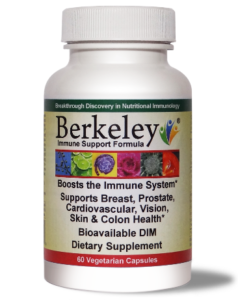Medical Abortion | What You Need To Know

Medical abortion, also known as medication abortion, is a safe and effective method for terminating an early pregnancy. It involves using a combination of medications prescribed by a healthcare provider to end a pregnancy. This method is widely chosen by individuals seeking a non-surgical option for abortion. In this guide, we’ll provide essential information about medical abortion, including its process, safety, legality, and what you need to know.
1. The Process of Medical Abortion:
Medical abortion typically involves two medications:
Mifepristone (RU-486): This medication is taken under the supervision of a healthcare provider. It works by blocking the hormone progesterone, which is necessary for maintaining the pregnancy.
Misoprostol: This medication is taken 24 to 48 hours after mifepristone. It causes the uterus to contract and expel the pregnancy.
The process generally unfolds as follows:
- You take mifepristone in the healthcare provider’s office.
- You take misoprostol at home.
- You may experience heavy bleeding and cramping as the pregnancy is expelled, which can last for several hours or days.
- A follow-up appointment with your healthcare provider is essential to ensure the abortion is complete.
These medications are safe and effective when administered under the supervision of a healthcare provider. While they are typically prescribed by a doctor, it’s important to understand how to access mifepristone and misoprostol tablets online safely. Here’s a guide on obtaining Mifepristone and Misoprostol tablets online:
2. Safety and Effectiveness:
Medical abortion is a highly safe and effective method when administered correctly by a healthcare provider. According to the American College of Obstetricians and Gynecologists (ACOG), the success rate for medical abortion is approximately 95-98% in pregnancies up to 10 weeks gestation.
3. Legality:
The legality of medical abortion varies by country and region. In many countries, it is legal and accessible, but restrictions and regulations may apply. It’s essential to understand the laws in your area before seeking a medical abortion.
4. Eligibility:
Medical abortion is typically recommended for pregnancies up to 10 weeks gestation. It may not be suitable for individuals with certain medical conditions or ectopic pregnancies (pregnancies outside the uterus). Your healthcare provider will assess your eligibility.
5. Side Effects and Risks:
Common side effects of medical abortion include:
- Heavy bleeding and cramping.
- Nausea and vomiting.
- Diarrhea.
- Fever and chills.
Serious complications are rare but can include excessive bleeding, infection, or an incomplete abortion. Seeking prompt medical attention in case of severe symptoms is crucial.
6. Support and Counseling:
Many healthcare providers offer counseling and support services to individuals undergoing medical abortion. Emotional support and access to information are important aspects of the process.
7. Privacy and Confidentiality:
Medical abortion can be a private and confidential choice. Healthcare providers are bound by patient confidentiality, and you have the right to privacy throughout the process.
8. Follow-Up Care:
After a medical abortion, it’s essential to attend a follow-up appointment with your healthcare provider. This ensures that the abortion is complete and that there are no complications.
9. Emergency Contraception:
If you have concerns about unintended pregnancy after a failed contraceptive method or unprotected sex, emergency contraception (morning-after pill) is available. It can help prevent pregnancy if taken within a specific timeframe after intercourse.
10. Access to Reproductive Healthcare:
Access to safe and legal abortion services is a fundamental aspect of reproductive healthcare. Laws and regulations regarding abortion may vary, but healthcare providers and organizations can offer guidance and support.
In conclusion:
Medical abortion is a medically supervised and safe option for terminating an early pregnancy. It provides individuals with a non-surgical choice and ensures privacy and confidentiality. It’s essential to consult a healthcare provider for accurate information, eligibility assessment, and access to safe medical abortion services. Additionally, understanding the laws and regulations in your area is crucial when considering this option.

